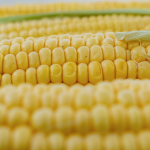I’ve written several times about taxes on sugar-sweetened beverages. While the public health goal has always been to reduce obesity, nearly every publication has looked at the effect of taxes and the subsequent higher prices on purchasing those drinks. Today, we finally have some research on how well those taxes reduce our weight; we already know they reduce the weight in our wallets.
Food & Nutrition
One of our loyal readers brought a recent Newsweek cover story to our attention. It is titled, Americans Are Addicted to 'Ultra-Processed' Foods, and It's Killing Us. In addition to cherry-picking words to favor “natural” over “ultra-processed,” whatever that means, the article raises but does not resolve or necessarily clarify some crucial issues. Are our foods addictive, like fentanyl? What does processed and ultra-processed really mean to our health? What does “the science” reveal or not fully comprehend? It is time to take a deeper dive.
Decades ago, I became a fan of the ACSH long before becoming an occasional contributor. I was motivated by one clear point of reasoning. I found it next to impossible to locate a reliable source of health-related issues I had an interest in, as well as being able to recommend that source to students enrolled in my college course for continuing education purposes.
Here’s the conundrum. Seafood contains omega-3 fatty acids, which are good for you. But seafood also contains mercury, which is not (think the Mad Hatter). So given the tradeoff, should you have that tasty swordfish steak? Will it improve your health, or undermine it? A new study answers the first of the two questions, and perhaps the second.
A recent study quantifies some of the previously undocumented benefits of the Green Revolution. The results are nothing short of stunning.
Environmental Working Group claims that meat "is exacerbating the climate crisis." EWG isn't wrong to point out the environmental impacts of animal agriculture, though the activist group has oversimplified the problem—and its promising solutions.
With Thanksgiving dinner safely in the rearview mirror, we still have several more holiday feasts ahead of us. In the age of COVID-19, we also have disruptions in the supply chain – including shelves that have toilet paper, but not some holiday food items. And the rising price of turkey presages rises in the price of beef, fruits, and vegetables.
The CNBC headline. “A Harvard nutritionist and brain expert says she avoids these five foods that ‘weaken memory and focus.” She is also the author of “This Is Your Brain on Food,” an Amazon #1 bestseller in obsessive-compulsive disorders. I haven’t read the book, but it would be pointless based on her article, which appeared on many other news outlets.
Are "ultra-processed" foods addictive? Some scientists say yes, pointing to experiments with sugar-craving rats and the difficulty many people have losing weight and keeping it off. Taken in isolation, these observations lend themselves to a food addiction model, but there's actually little evidence to support the theory.
Can avoiding certain foods reduce your dementia risk? One nutritional psychiatrist seems to think so, but the evidence is much messier than it looks at first glance.
Disease-resistant grapes are among the many genetically engineered plants that have yet to be commercialized. They would help the wine industry cut its pesticide use and expand production, lowering costs for both winemakers and consumers. Why haven't these GE grapes been approved?
A new report documents the hefty price countries pay for banning genetically engineered crops. The results aren't pretty, but they clearly illustrate the benefits of embracing biotechnology.











